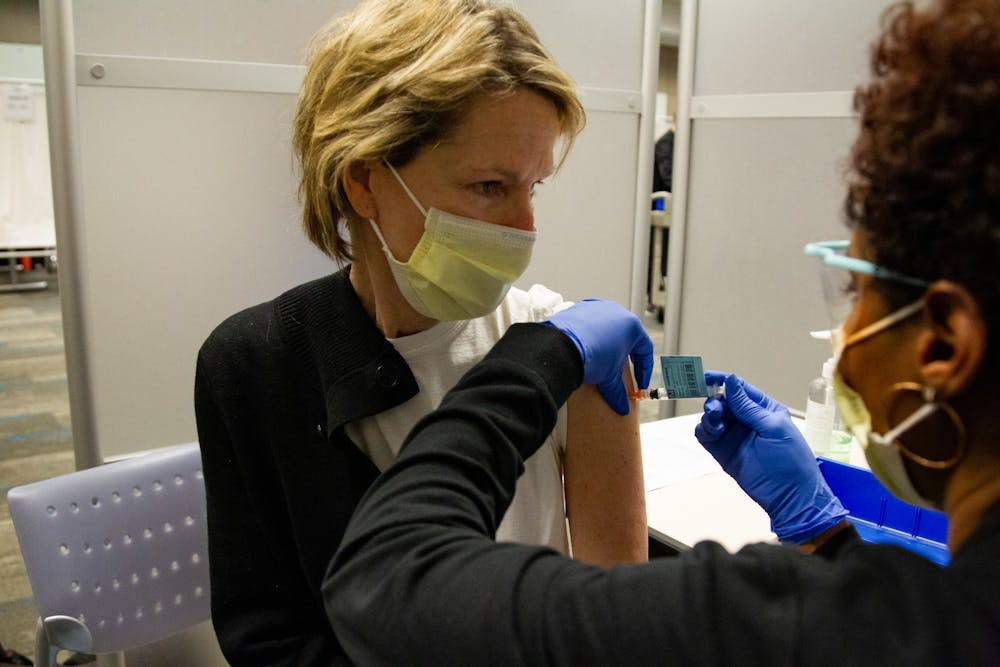With the COVID-19 vaccination rollout, the long-awaited end of the pandemic might seem to be just around the corner. But as the new presidential administration begins to implement its coronavirus response plan, the question remains:
How soon will the general public actually be able to receive the vaccine, and what will life look like afterward?
Currently, North Carolina’s vaccination plan aligns with federal priorities. According to the North Carolina Department of Health and Human Services, the goal is to "vaccinate as many people as quickly as possible given the limited supply."
Right now, health care workers and anyone over the age of 65 can apply for vaccination, and frontline essential workers will be next. After that, the priority is expected to be adults at high risk for exposure and increased risk of severe illness, and then the general public.
Much like the flu vaccine, the COVID-19 vaccine has been proven to be effective — but not 100 percent protective — against the virus. However, the vaccine will likely make COVID-19 infections less severe should one get sick following the vaccination.
The COVID-19 vaccination is an mRNA vaccine, which means it contains material from the virus. This gives cells instructions to make a harmless protein that simulates the virus. After copies are made of the protein, the body destroys all genetic material from the vaccine. From there, the immune system builds cells to fight the virus in case one is exposed to COVID-19 in the future.
Each vaccine requires two shots, given several weeks apart.Both shots must be taken in order for your body to first recognize and prime the immune system for the virus, and then make that immune response stronger. Individuals can expect to receive the COVID-19 vaccine at health care facilities or pharmacies like CVS and Walgreens.After receiving the shot, one can expect to have side effects similar to the yearly flu shot, but those effects should subside in a matter of days.
However, protection from a vaccine also doesn’t occur immediately — the ideal level of immunity is only reached weeks after the first shot. In addition, research is still being performed on whether or not individuals who are vaccinated can still be asymptomatic and potentially spread the virus.
Masks will likely still be required in public spaces in order to limit the spread of the virus and its continued impact on the health care system. President Joe Biden has said that masks will need to be worn for the next 100 days, but even that figure may be optimistic.





